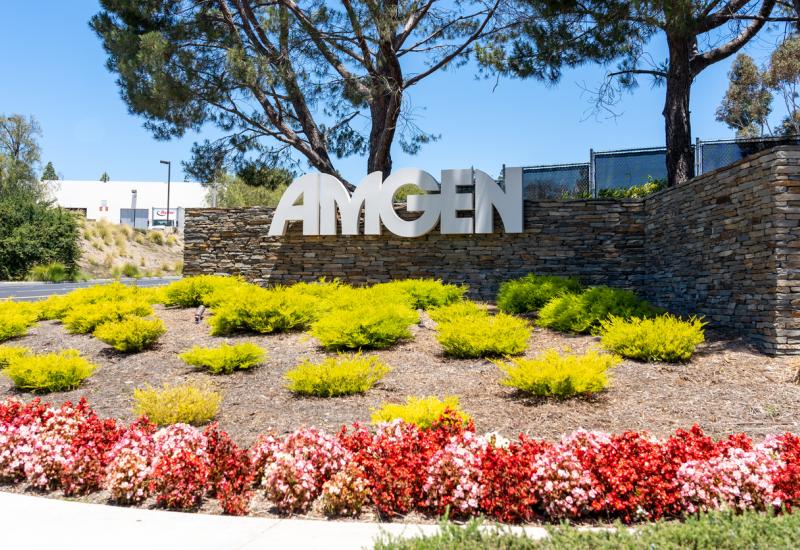
One of Adcetris’s twin sons strikes out
Pfizer cans PF-08046045, but keeps PF-08046044 for now.
Pfizer cans PF-08046045, but keeps PF-08046044 for now.

One of the pipeline projects Pfizer inherited through its $43bn takeover of Seagen, the Adcetris follow-on PF-08046045, had endured delays to its phase 1 study in lymphoma, and on Tuesday Pfizer revealed the inevitable: the asset was being discontinued.
Also out, according to the group’s pipeline update, is another Seagen-derived project, the anti-CD228/4-1BB bispecific fusion protein PF-08046049, and the anti-LILRB1/2 MAb PF-07826390. Still, the group’s efforts to improve on the characteristics of Adcetris, the drug seen as a key reason behind the Seagen takeover, continue with the development of yet another follow-on, PF-08046044.
Adcetris, an anti-CD30 ADC licensed to Takeda, sold $1.1bn last year, but third-quarter 2025 revenues booked by Pfizer fell 20% to $215m. Seagen originated two follow-ons: PF-08046045 (originally coded SGN-35T), which was identical to Adcetris except for using a different linker; and PF-08046044 (SGN-35C), which employs a topoisomerase 1 inhibitor payload instead of MMAE.
Trial paused?
A first-in-human study of PF-08046045 emerged two years ago, with a start date of January 2024, seeking to enrol 110 lymphoma patients. However, by November 2024 it was marked on clinicaltrials.gov as “not recruiting”, with just 18 subjects enrolled, before apparently resuming enrolment in March of this year, according to the US registry.
The suggestion is that the trial was paused for some reason, though this was never announced by Pfizer. However, despite the trial being upsized to 150 patients in May, the current record reveals that only 22 were actually enrolled.
Pfizer’s third-quarter pipeline update merely lists PF-08046045 as a post 5 August discontinuation, without giving a specific reason. The aim behind PF-08046045’s tripeptide linker was to maintain Adcetris’s potency in cancer cells while reducing its bone marrow toxicity, but evidently this hasn’t panned out.
Meanwhile, the topoisomerase 1 inhibitor payload-containing ADC PF-08046044 remains listed as an active Pfizer project. However, this too might be facing some issues, given that its phase 1 trial, which began in May 2024, had once planned to enrol 210 patients; that target was cut to 46 last month, and currently stands at 57.
Pfizer’s Seagen-derived anti-CD30 ADCs
| Project | Cleavable linker | Payload | DAR | Status |
|---|---|---|---|---|
| Adcetris | Valine-citrulline | MMAE, auristatin | 4 | Approved in various settings for classical Hodgkin’s lymphoma, anaplastic large cell lymphoma, peripheral T-cell lymphomas & large B-cell lymphoma |
| PF-08046044 (SGN-35C) | Valine-lysine-glycuronide | AMDCPT, camptothecin | 8 | Ph1 started May 2024; enrolment target changed from 170 to 210 to 46 to 57 patients |
| PF-08046045 (SGN-35T) | D-leucine-alanine-glutamate | MMAE, auristatin | 4 | Discontinued after ph1 enrolled 22 out of a planned 150 patients |
Source: OncologyPipeline.
As for Pfizer’s two other discontinuations, that of PF-07826390 follows recent exits by Merck & Co and Sanofi. PF-07826390 targets LILRB1 and LILRB2, antigens also known as ILT2 and ILT4, and entered a phase 1 study testing it as monotherapy or in combination with sasanlimab and/or chemo in August 2024.
In the meantime, Merck deprioritised MK-4830, an anti-ILT4 antibody it had been developing with Agenus, while Sanofi handed rights to BND-22, an anti-ILT2 MAb, back to its originator Biond Biologics. Pfizer doesn’t appear ever to have disclosed any clinical data for PF-07826390.
As for PF-08046049, the discontinuation of this asset marks another setback for the idea of co-stimulation, in this case via activity at 4-1BB. This molecule was originated under the code PRS-346 by Pieris, which licensed it to Seagen as SGN-BB228 in a February 2018 deal worth $30m up front.
Pieris later ran out of money and delisted from Nasdaq, remaining only as a legal entity to collect royalties from licensors. Pfizer’s discontinuation of PF-08046049 extinguishes one of these future revenue streams.
1711













